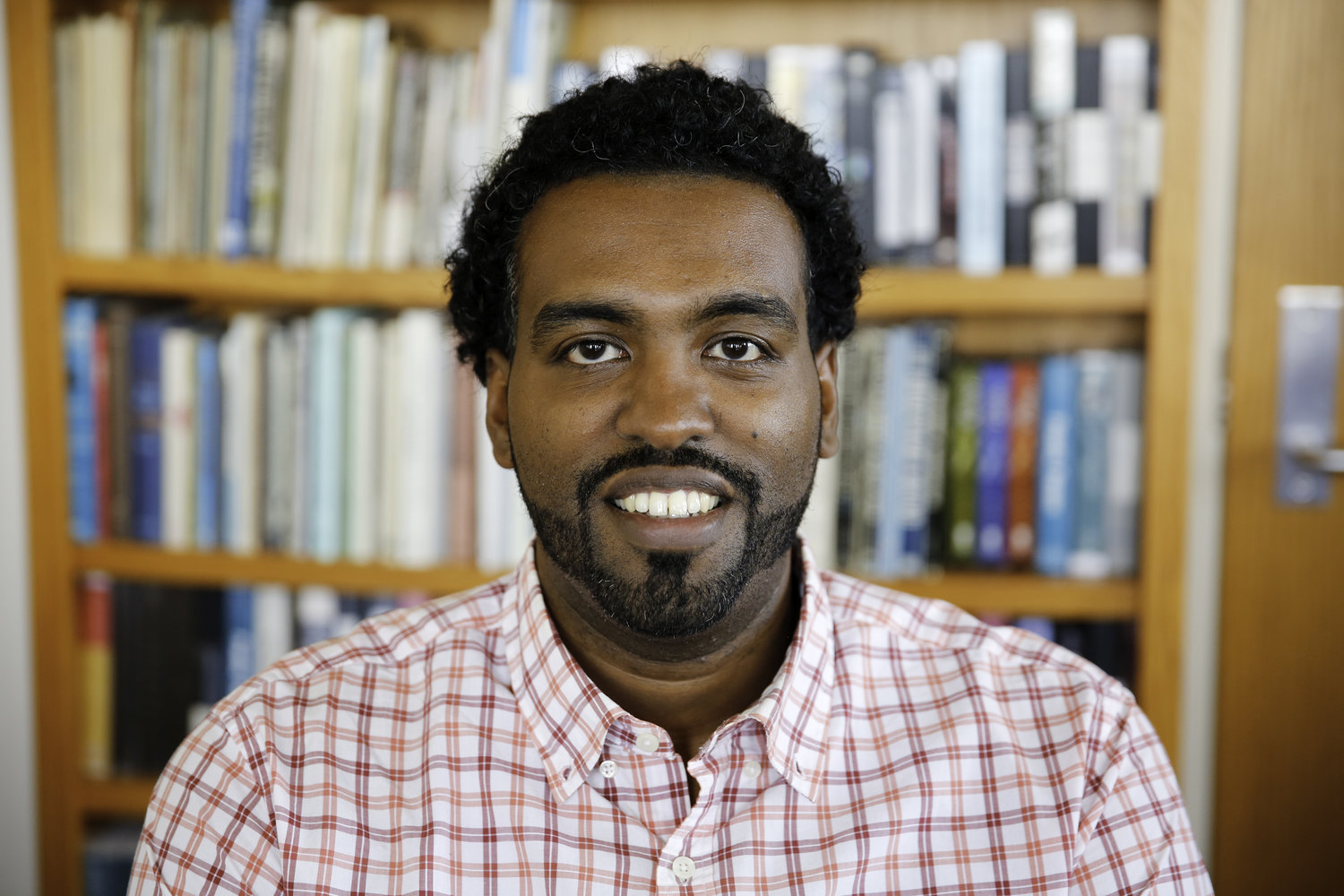Woldense is working on an initiative with the government to give Minnesota prisoners access to higher education.
By Shannon Doyle
In early March, Josef Woldense gave his Introduction to Authoritarian Politics class a lesson on how to develop arguments in analytical papers.
So he showed them a clip from Game of Thrones.
Through camera angles, actors’ tone of voice and power dynamics between characters, Woldense presented the elements of storytelling as the building blocks of analytical writing. Such unusual pedagogical approaches are routine for someone who teaches African history through novels and political dynamics through interactive games.
“When we as academics deal with our subject matters,” Woldense said in the Teaching in Higher Ed podcast, “It’s incredibly complicated, intricate, and in many respects, it’s a different world that really just we, the researcher inhabit, and the challenge then becomes, well, how do you get your audience to enter that world?”
Woldense teaches in the African American and African studies and political science departments. Storytelling is his preferred method of bringing students into his world, he said, because it is ingrained in human culture, making the process memorable and engaging.
Woldense was born in Eritrea, Africa. His family moved to Germany to flee a war with Ethiopia when he was 3, and he remained there for the rest of his youth.
“I loved growing up where I did,” he said. “It was actually a lot of immigrants, so I had friends from all over the world.”
In his last year of high school, he decided to move to the U.S. through an exchange program. After graduating, he went to Bard College for his undergraduate degree, then Indiana University for a Ph.D. in political science. He went on to teach at Bard, the University of Illinois and finally landed in Minnesota.
Along the way, he began tutoring for the Bard Prison Initiative (BPI), a Bard College program that educates people in New York prisons. Now he is trying to bring a similar plan to Minnesota.
The Bard College program was spurred by former President Bill Clinton’s administration banning federal student aid programs, like the Pell Grant, for people in prison in 1994. Losing those finances, according to Woldense, meant colleges could no longer afford to teach in prisons.
“So now suddenly you have students with tons of potential, just potentially wasting away in prisons,” he said. Bard College started its program six years later in 2000.
After Woldense moved to Minnesota, Gov. Tim Walz coincidentally hired Daniel Karpowitz, a director of BPI and one of Woldense’s professors in college, to be a senior Department of Corrections official. Karpowitz recruited Woldense to start a similar initiative in Minnesota.
There is no formal name to the project, but he has been having meetings and making connections, drawing up plans and making goals for what’s to come.
The project is unique, he said, because it is the first state initiative to bring higher education into prisons. Private projects like BPI exist, but none are funded by any state government.
“The goal is to have multiple universities and colleges to be involved,” he said. His work has been thinking through that collaboration and conceiving the infrastructure at the University―“to really build something that’s solid” that would work statewide.

